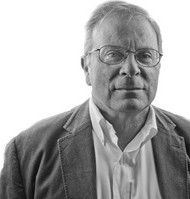Over the past 3+ decades I have been both an organizational team member, and a serial entrepreneur. That journey has led to successes and failures and many lessons were learned the hard way.
Among my earliest lessons was learning to admit that I didn’t even know what I didn’t know. After almost 10 years at a NYSE conglomerate, I had risen to Group Vice President by the ripe old age of 33, managing multiple companies with over 300 employees. When the opportunity was presented, I acquired my division and 2 subsidiaries. My rationale was that I knew these businesses inside and out, had hired most of the senior managers, and overseen the strategic planning for years. The division was a consistent producer of growth and cash flow. I had little problem raising debt on an 8:1 debt/equity ratio (after all, that personal guarantee clause was insignificant and would never be exercised). I slapped myself on the back, took my wife to Hawaii and bought a Rolex. Then I left for Japan and Taiwan to acquire strategic tuck-in companies that would increase our ability to grow market share. The Company was wildly successful; after all, contracts with the “Big Three” domestic automakers would drive our valuation through the roof. In fact, we were offered coveted contracts for the platform life of Ford’s Escort, Cougar, Thunderbird, and Bronco vehicles.
While I was traveling back and forth between the Far East and everywhere other than our Chicago headquarters, my hand-picked management was running the day-to-day business. At Board meetings, when directors questioned how little cash flow was being generated, although monthly revenue continued to rise, I paid little attention. When I visited our bank with our revised business plan, that included a request for increased debt, the merry-go-round stopped. The bank analysts foresaw the 1989-91 recession, the growing market share of Japanese automakers and my poor management of the assets that secured their loan. I was given one year to move my credit.
Lesson #1 was that ten years with a corporate parent, with significant access to unsecured credit, had blinded me to the understanding of how much effort and thought went into successful business management. I hadn’t accounted for the true cost of capital. I was choking on my own hubris. Pre-entrepreneur, we booked a cashless “corporate charge” every month to our parent company. Belatedly, I realized that the bank loan I had taken to fund most of the acquisition was costing us almost $400,000 per year. Our balance sheet was a mess; inventory increased, while turnover declined, accounts receivable DSO increased three-fold while our overhead was sky-rocketing. We were starved for capital.
I sold my company to a private equity group, led by a former president of a Ford Motor division. I was 36 years old and already felt like a failure. Now this nice gentleman in the Saville Row suit was going to guide me and mentor me. I relocated our manufacturing assets into a joint venture with one the equity group’s other companies, and moved several of our executives to our new out-of-state location. Lesson #2 came 2 years later when I resigned as President and COO, after the joint venture executives, all former Ford employees, supplanted my management team and proceeded to lose several automaker contracts. I learned the hard way to understand what motivated providers of capital, lenders or equity investors (see article “Sources of Funds for Entrepreneurs and the Motivations Behind Investment”).
Lesson #3: It’s all about people and leadership. Whether it’s your family, bank or a private equity investor, they are investing in you. A great business plan, market research or a ground-breaking invention is a thing or widget. People invest in people. Someone with experience, integrity and the ability to lead. I always knew that I was bright, but what I learned later was that at 32 years old, I was a poor leader. I relied on others to look after our business, and blamed them for me not doing my job. I had yet to learn that when it is other people’s money, from my family or The First National Bank of Chicago, they entrusted their investment to me, not my management team. I spent many years earning back their trust, and paid a price for my education.






